Learning by Doing
Connecting with civil rights changemakers inspires students
Nyelah O’Meally ’23 and Matthew Reimann ’24 reflect on this year’s Civil Rights Journey to Alabama, Mississippi, and Tennessee.
by Chris Farnum
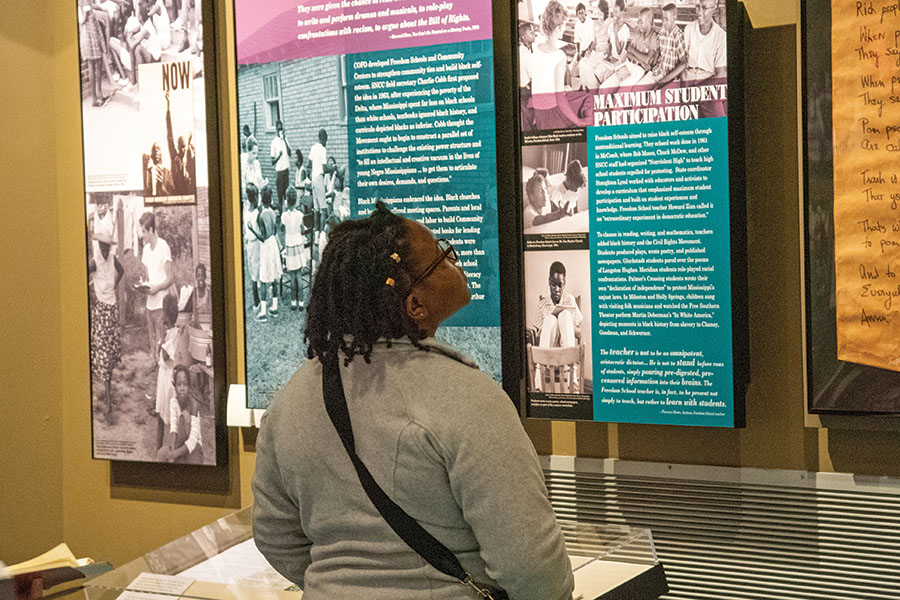
Nyelah O'Meally ’23 says her Nazareth experiences have made her see herself as a changemaker.
The week-long Civil Rights Journey offered during winter break is one reason Matthew Reimann '24 chose Nazareth for his bachelor's degree. As a future lawyer, federal judge, or elected official, he believes it's important to deeply understand how a sanctioned system of slavery could exist — and how people worked for change. "You have to know how the law can uphold justice and at the same time implement the most unjust system in our society," he says.
Nyelah O'Meally '23 has long been interested in social justice and civil rights. She joined this year's journey to Alabama, Mississippi, and Tennessee to meet with activists, historians, and scholars because other students and Nazareth employees called it a "life-changing experience." She plans to become a social worker — to help people advocate for themselves and connect to resources — and appreciates gaining new perspectives and strategies to address issues that persist today.
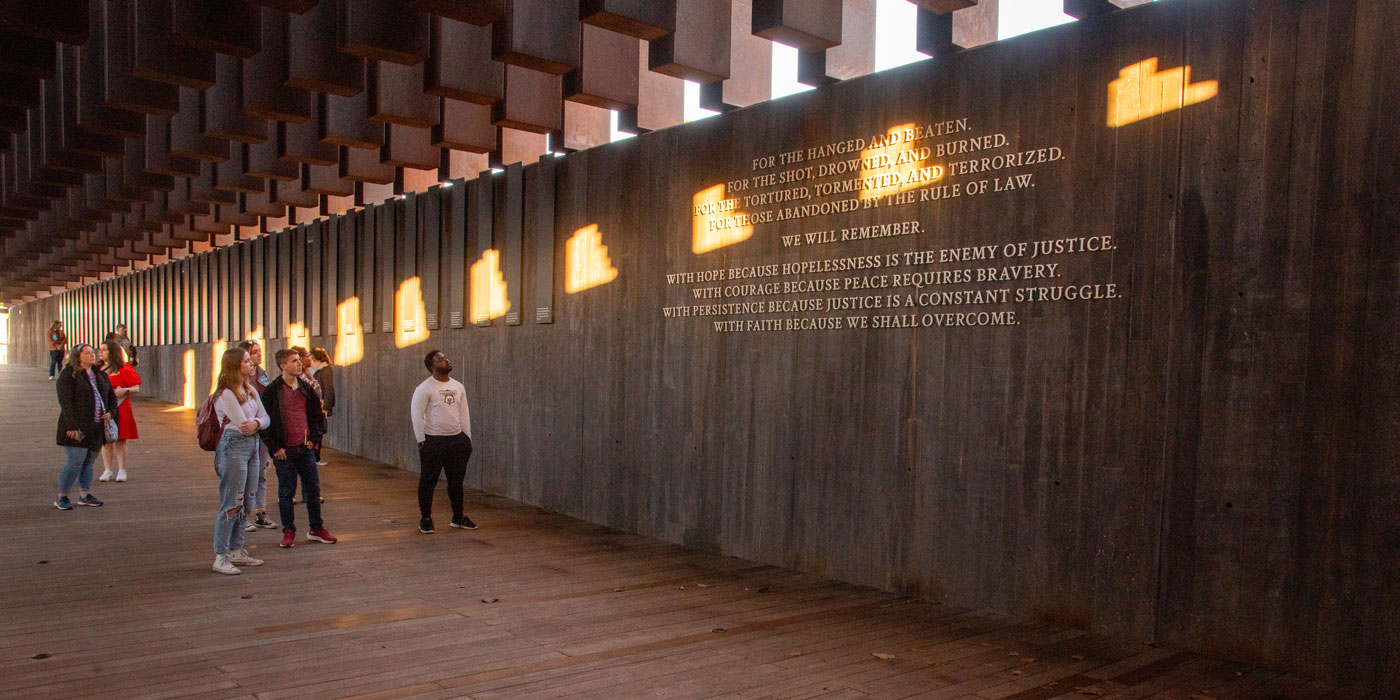
Left to right: Willow Clark, Ally German, Matthew Reimann, and Curtis Raeford view monuments to thousands of victims of racial terror lynchings at The National Memorial for Peace and Justice in Montgomery, Alabama.
A powerful coffee shop moment
At the Coffee Shoppe in Selma, Alabama, owner Jackie Smith brought history and hope alive for the Nazareth group of 20 students, plus 10 administrators, staff, and faculty. Smith, who is Black, told them that the shelves displaying her business awards and plaques are where a diner window once served Black people, when they were forced to stay outside. That 1960s segregation occurred during Smith's childhood. Now Smith's shop supports the community, such as partnering with a manufacturer to guide people in job searches.
"She showed some of the light that's in Selma after learning about so much darkness," says Nyelah.
The group also learned about civil rights work by the Sisters of St. Joseph — Nazareth's founders — and engaged in a day of service working on hunger relief with the sisters.
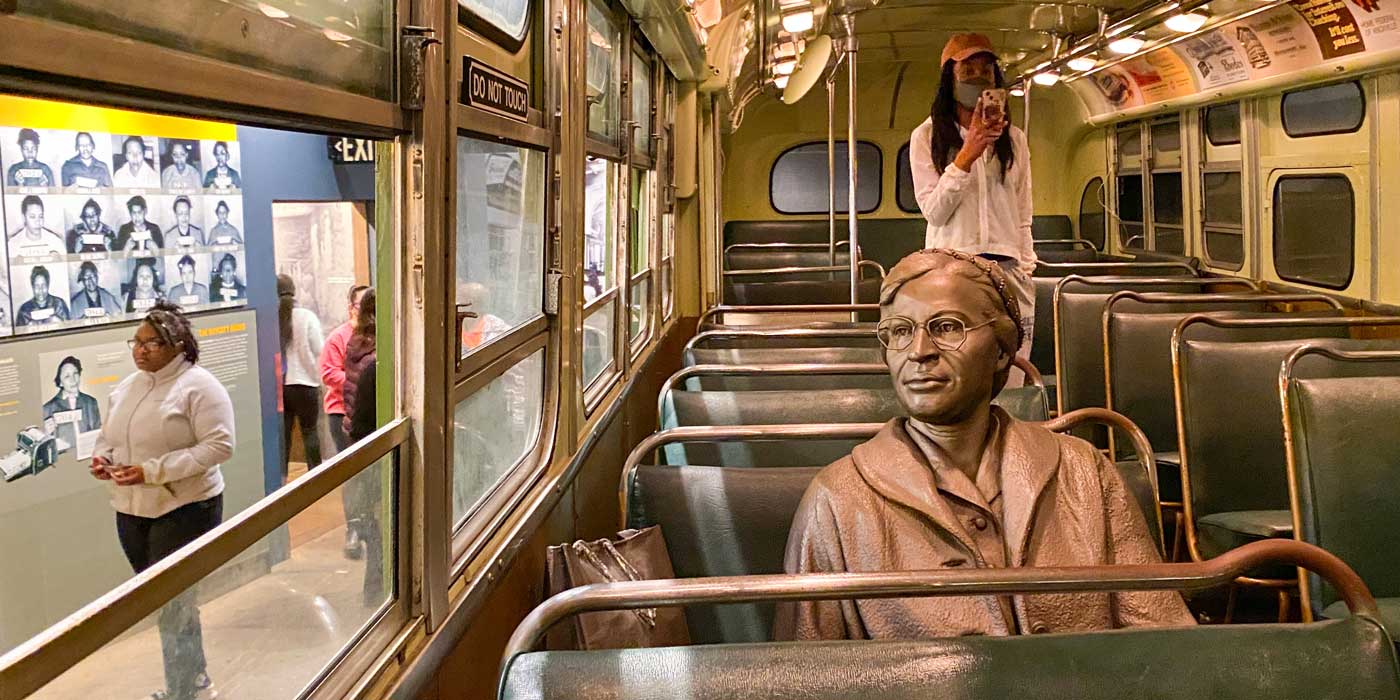
Nyelah O'Meally, at left, touring the National Civil Rights Museum in Memphis, Tennessee, which includes an interactive bus exhibit about Rosa Parks. Classmate Zipporah Sparkman takes a photo on the bus.
New insights about changemaking
Museums and memorials in the south presented many powerful stories about work by people and organizations that aren't well known. Nyelah took away the message that being a changemaker is about your individual actions to the success of the movement, not necessarily being at the forefront. What's important, she says, is an authentic desire to help, not to get recognition for your actions.
Before going to Nazareth, she says, "I never really saw myself as a leader or changemaker. I wanted to be in the background." Over four years, she's become more outspoken about things that could be better, on campus and in the Rochester community.
Nyelah says the experience down south is inspiring her to share information she learned, including how to effectively work for change. "A big theme is that it was done collectively," she points out. She encourages people to learn more about civil rights history and to use the knowledge to inform personal beliefs and actions, saying each of us has an impact on others: "Even if you're not an activist, you are interacting with people in some capacity, so the history is always relevant."
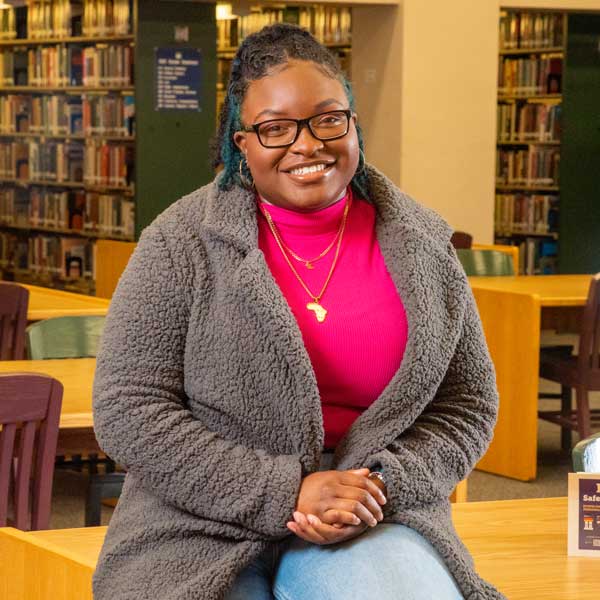
Senior Nyelah O'Meally says her Nazareth experiences have made her see herself as a changemaker.
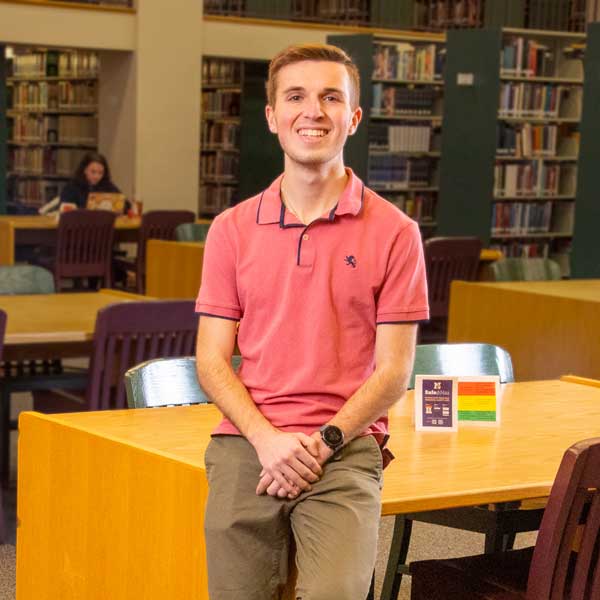
"A series of incremental changes makes monumental change," says junior Matthew Reimann.
Matthew agrees. He believes "a series of incremental changes makes monumental change." Matthew was struck by hearing directly from Hezekiah Watkins, who's in his 70s and a guide at the Mississippi Civil Rights Museum in Jackson, the capital city. At 13, growing up in Jackson, Watkins saw TV news about the Freedom Riders — Black and white people who continued working together to protest segregated bus terminals in the south, even as some were severely beaten, imprisoned, or killed. Watkins spoke passionately and with pride about being arrested more than 100 times as a Freedom Rider, to achieve basic civil rights for people. "He stressed that individual actions matter," says Matthew.
Some people back home asked Matthew why he'd use college break time to learn old history. "Actually, it wasn't so long ago," he told them. "The problems still exist" — including police brutality and denial of voting rights. Today's challenges make knowing this history "so important in your life, no matter what you do."
Nazareth's Center for Spirituality sponsors this and other Solidarity and Social Justice Retreats as an opportunity for participants to learn and to consider deeply how the learning affects who they are and how they live in the world.
Matthew says he feels an obligation to work for justice. In the end, he says, "There's more to life than just a job. I want to be a person that my parents, my friends, and my future children will be proud to know."
Chris Farnum is a director in Marketing and Communications.